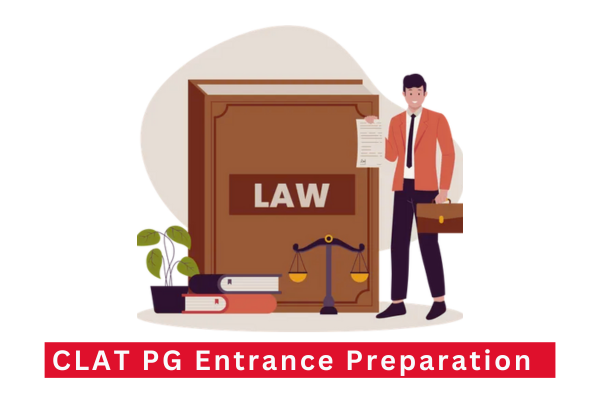
Understanding Free Legal Aid in India - A Fundamental Right
In a country as vast and diverse as India, ensuring equal access to justice is a critical pillar of our democracy. Justice cannot truly be served if it remains out of reach for those who cannot afford legal representation. This is why the Indian constitution recognizes the right to free legal aid as a fundamental aspect of ensuring equality before the law.
Through the Legal Services Authorities Act of 1987, India put in place a framework to provide free legal aid to those who desperately need it but lack the financial means. This Act is a powerful tool in upholding the principles of justice and human rights enshrined in our constitution.
In this blog, we will delve into the intricacies of the free legal aid system in India, understanding who is eligible, how to apply, and the far-reaching impact it has had on promoting access to justice across the nation.
The Legal Services Authorities Act of 1987
The Legal Services Authorities Act of 1987 was a landmark legislation that aimed to make the justice system accessible to all, regardless of their economic status or social standing. It established a multi-tier system of legal services authorities at the national, state, district, and taluka levels to ensure that free legal aid is available throughout the country.
The Act is rooted in the fundamental principles of the Indian constitution, which guarantees equal protection under the law and prohibits discrimination based on religion, race, caste, sex, or place of birth. By providing free legal assistance to those who cannot afford it, the Act seeks to bridge the gap between the privileged and the underprivileged, ensuring that justice is not a luxury reserved for the wealthy.
Who is Eligible for Free Legal Aid in India?
The Legal Services Authorities Act outlines specific categories of people who are entitled to free legal aid. These include:
- Women and children: Recognizing the vulnerability and potential for exploitation faced by women and children, the Act extends free legal aid to these groups to ensure their rights are protected.
- Members of Scheduled Castes and Scheduled Tribes (SC/ST): To address historical disadvantages and promote social justice, members of Scheduled Castes and Scheduled Tribes are eligible for free legal aid.
- Industrial workers: Workers in the industrial sector, who often face exploitation and unfair labor practices, are entitled to legal assistance to safeguard their rights.
- Victims of disasters, violence, or other hardships: Those who have suffered from natural calamities, violence, or other adverse circumstances that have left them in a vulnerable position can access free legal aid.
- Disabled persons: Recognizing the unique challenges faced by individuals with disabilities, the Act extends free legal aid to this group to ensure their rights are upheld.
- People in custody: Individuals who are in custody, whether in prisons, detention centers, or other forms of confinement, are eligible for free legal aid to ensure fair trials and protect their rights.
- Individuals with income below a certain limit: The Act also provides for free legal aid to those whose annual income falls below a specified threshold, which varies from state to state.
It is important to note that the income ceiling for eligibility is periodically revised to account for changes in the cost of living and economic conditions. You can find the latest income limits for your state on the National Legal Services Authority (NALSA) website.
How to Apply for Free Legal Aid in India
If you believe you meet the eligibility criteria outlined in the Legal Services Authorities Act, you can apply for free legal aid at any stage of your case. The process is designed to be accessible and straightforward, with multiple avenues available to seek assistance.
Step 1: Approach the Appropriate Authority
You can approach any of the following authorities to initiate the process of obtaining free legal aid:
- Taluka Legal Services Committee (TLSC)
- District Legal Services Authority (DLSA)
- State Legal Services Authority (SLSA)
- National Legal Services Authority (NALSA)
These authorities are strategically placed at different administrative levels to ensure that legal aid services are readily available throughout the country.
Step 2: Submit Your Application
Once you have identified the appropriate authority, you will need to submit an application for free legal aid. This application should provide details about your case, your financial circumstances, and any supporting documentation that demonstrates your eligibility under the act.
Step 3: Assessment and Assignment of Legal Representation
Upon receiving your application, the concerned authority will assess your eligibility based on the criteria outlined in the Legal Services Authorities Act. If deemed eligible, you will be assigned a lawyer or provided with other forms of legal assistance, such as legal advice, drafting of legal documents, or representation in court proceedings.
The Role of Legal Services Authorities
The Legal Services Authorities Act established a hierarchical structure of authorities at various administrative levels to ensure the effective implementation and oversight of free legal aid services. These authorities play a pivotal role in upholding the principles of equal access to justice and protecting the rights of the underprivileged.
- National Legal Services Authority (NALSA) NALSA is the apex body responsible for monitoring and coordinating the implementation of legal aid services across the country. It formulates policies, issues guidelines, and oversees the functioning of state-level authorities.
- State Legal Services Authorities (SLSAs) Each state and union territory has its own State Legal Services Authority, which is responsible for implementing the legal aid program within its jurisdiction. SLSAs work closely with district-level authorities and ensure the effective delivery of legal services at the grassroots level.
- District Legal Services Authorities (DLSAs) At the district level, District Legal Services Authorities play a crucial role in managing and coordinating legal aid services within their respective districts. They receive applications, assess eligibility, and assign lawyers or provide other forms of legal assistance.
- Taluka Legal Services Committees (TLSCs) For ease of access, Taluka Legal Services Committees are established at the sub-divisional level, often covering multiple villages or small towns. These committees serve as the first point of contact for individuals seeking free legal aid and act as a bridge between the local community and the broader legal aid framework.
Empowering the Underprivileged: The Impact of Free Legal Aid
The provision of free legal aid has far-reaching implications for the underprivileged and marginalized sections of Indian society. By ensuring equal access to justice, it empowers individuals to defend their rights, seek redressal for grievances, and navigate the complexities of the legal system without financial barriers.
- Protecting the Rights of the Vulnerable Free legal aid plays a crucial role in safeguarding the rights of vulnerable groups, such as women, children, disabled individuals, and victims of violence or disasters. It provides them with the necessary legal support to seek justice, challenge discrimination, and protect themselves from exploitation or abuse.
- Upholding the Principles of Due Process and Fair Trial For those who find themselves in custody or facing criminal charges, free legal aid ensures that they have access to legal representation, upholding the principles of due process and fair trial. This safeguard is essential in maintaining the integrity of the judicial system and preventing miscarriages of justice.
- Promoting Social and Economic Empowerment By providing legal assistance to industrial workers, members of Scheduled Castes and Scheduled Tribes, and individuals with low incomes, free legal aid contributes to their social and economic empowerment. It enables them to protect their rights, seek redress for grievances related to employment or discrimination, and navigate legal issues that may arise in their daily lives.
- Fostering Confidence in the Justice System The availability of free legal aid instills confidence in the justice system among the underprivileged sections of society. It sends a powerful message that the law is accessible to all, regardless of one's financial circumstances, and that the pursuit of justice is not a privilege reserved for the wealthy.
Challenges and Way Forward
While the Legal Services Authorities Act and the provision of free legal aid have made significant strides in promoting equal access to justice, there are still challenges that need to be addressed to ensure the effective implementation of this fundamental right.
- Awareness and Accessibility Despite the widespread availability of legal aid services, there is a need to increase awareness among the general public, particularly in rural and remote areas. Efforts should be made to ensure that information about the eligibility criteria and application process is widely disseminated, empowering individuals to exercise their rights.
- Quality of Legal Representation While the act ensures the provision of legal aid, there is a need to maintain high standards of legal representation. Continuous training and capacity-building initiatives for legal aid lawyers are essential to ensure that they are equipped to handle complex cases and provide effective legal assistance.
- Adequate Funding and Resources Effective implementation of the legal aid program requires adequate funding and resources. This includes allocating sufficient budgets for legal aid authorities, providing infrastructure and logistical support, and ensuring that legal aid lawyers are fairly compensated for their services.
- Collaboration and Coordination Fostering collaboration and coordination among various stakeholders, such as legal aid authorities, civil society organizations, and the judiciary, is crucial for the seamless delivery of legal aid services. By working together, these entities can identify gaps, share best practices, and develop innovative solutions to overcome challenges.
Conclusion
The Legal Services Authorities Act of 1987 and the provision of free legal aid in India represent a significant step towards upholding the principles of equal access to justice and empowering the underprivileged sections of society. By ensuring that financial constraints do not prevent individuals from seeking legal recourse, this initiative promotes social and economic empowerment, protects the rights of the vulnerable, and fosters confidence in the justice system.
However, the journey towards achieving true equal access to justice is an ongoing process that requires continuous efforts, resources, and commitment from all stakeholders. By addressing challenges related to awareness, quality of legal representation, adequate funding, and collaboration, India can further strengthen its legal aid framework and solidify its position as a nation that upholds the fundamental rights of its citizens.
Ultimately, the provision of free legal aid is not just a matter of legal obligation but a moral imperative rooted in the principles of equality, justice, and human dignity. It serves as a testament to India's commitment to upholding the rule of law and ensuring that no one is left behind in the pursuit of justice.


.png)




.png)
